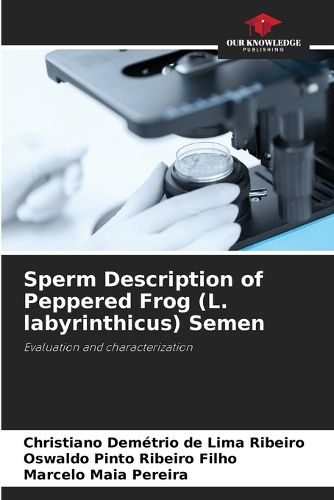Readings Newsletter
Become a Readings Member to make your shopping experience even easier.
Sign in or sign up for free!
You’re not far away from qualifying for FREE standard shipping within Australia
You’ve qualified for FREE standard shipping within Australia
The cart is loading…






Leptodactylus labyrinthicus (Spix, 1824) (Amphibia, Anura, Leptodactilidae), whose most common name is pepper frog or gia, was described as Rana labyrinthica by Spix in 1824 and redefined as a new genus (Leptodactylus labyrinthicus) (CEI, 1980). The population of the peppered frog in Brazil has been decreasing due to the constant degradation of natural ecosystems, especially due to anthropogenic actions, predatory hunting and the introduction of exotic species. Knowledge of the reproductive cycle is fundamental to understanding the life cycle strategies of living beings. The dispersal of vertebrates depends on the adaptation of these cycles to the environment. And, for the preservation of the peppered frog, this knowledge can provide subsidies for phylogenetic analyses of this species. The importance of the peppered frog for the Brazilian ecosystem and the lack of studies on the semen of this species justify the development of this work, the main objective of which was to evaluate the characteristics of peppered frog semen and spermatozoa.
$9.00 standard shipping within Australia
FREE standard shipping within Australia for orders over $100.00
Express & International shipping calculated at checkout
Leptodactylus labyrinthicus (Spix, 1824) (Amphibia, Anura, Leptodactilidae), whose most common name is pepper frog or gia, was described as Rana labyrinthica by Spix in 1824 and redefined as a new genus (Leptodactylus labyrinthicus) (CEI, 1980). The population of the peppered frog in Brazil has been decreasing due to the constant degradation of natural ecosystems, especially due to anthropogenic actions, predatory hunting and the introduction of exotic species. Knowledge of the reproductive cycle is fundamental to understanding the life cycle strategies of living beings. The dispersal of vertebrates depends on the adaptation of these cycles to the environment. And, for the preservation of the peppered frog, this knowledge can provide subsidies for phylogenetic analyses of this species. The importance of the peppered frog for the Brazilian ecosystem and the lack of studies on the semen of this species justify the development of this work, the main objective of which was to evaluate the characteristics of peppered frog semen and spermatozoa.